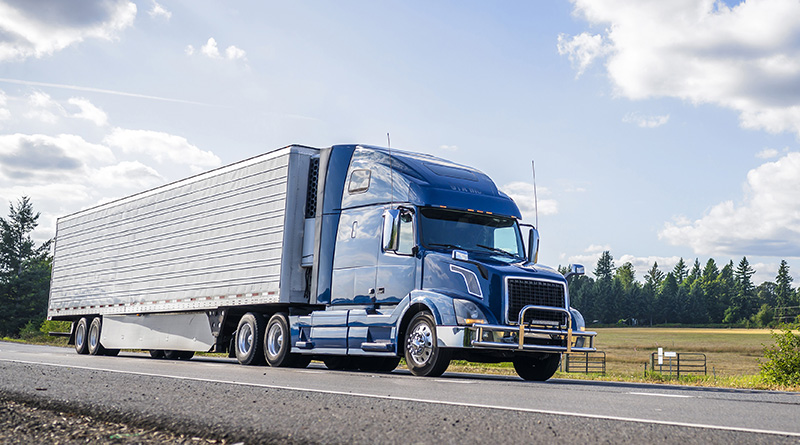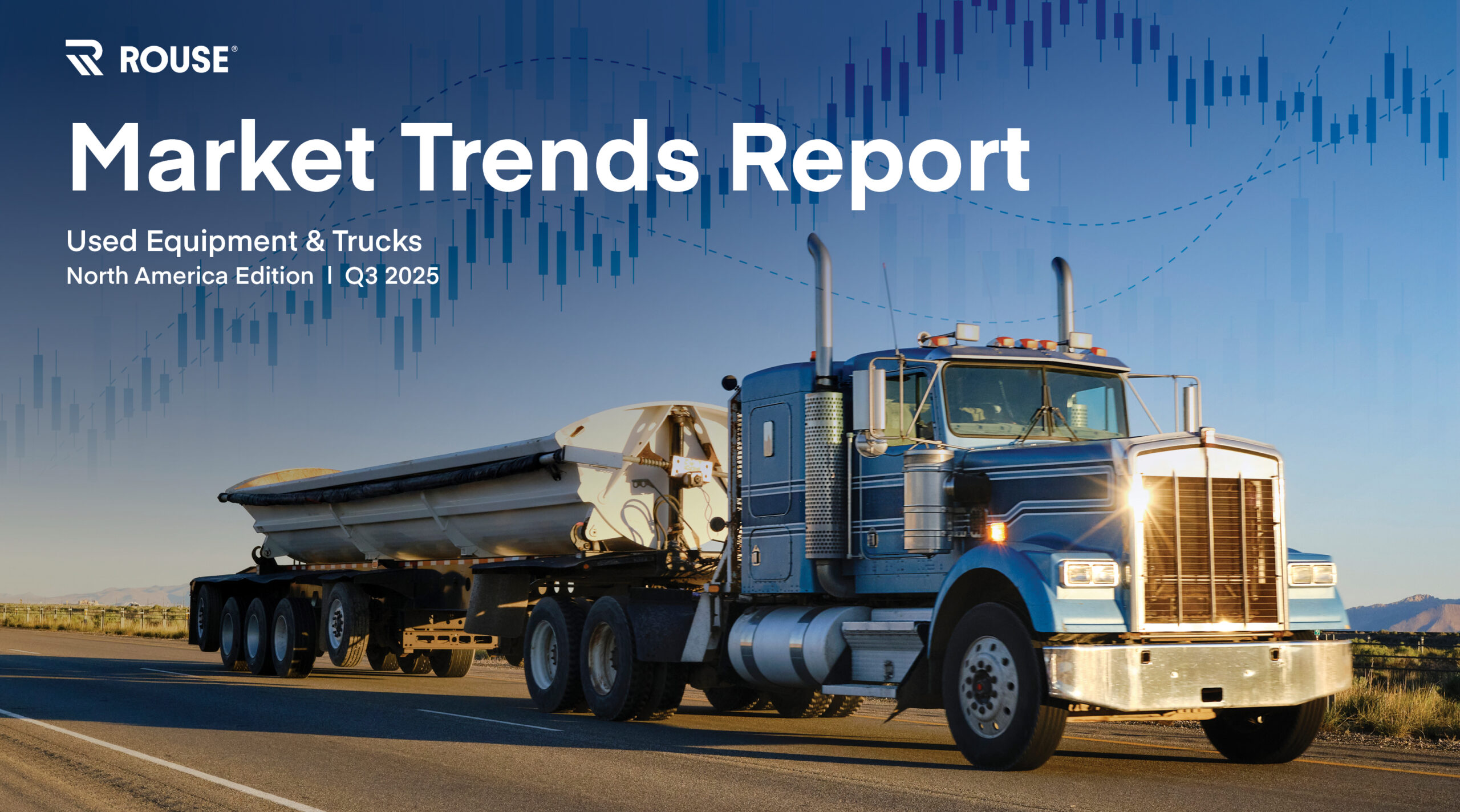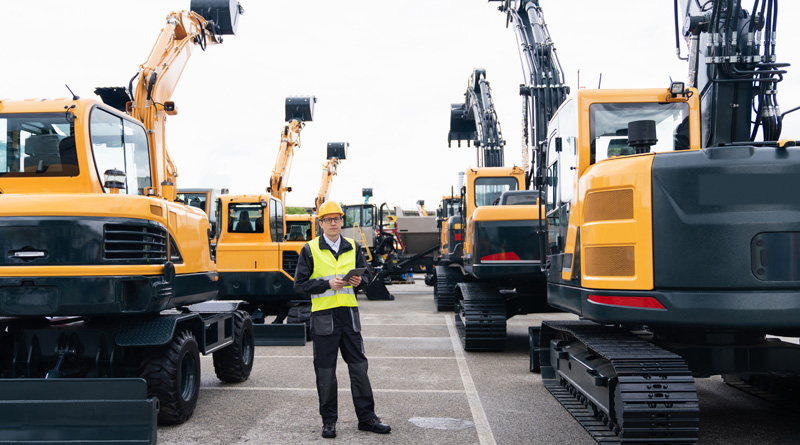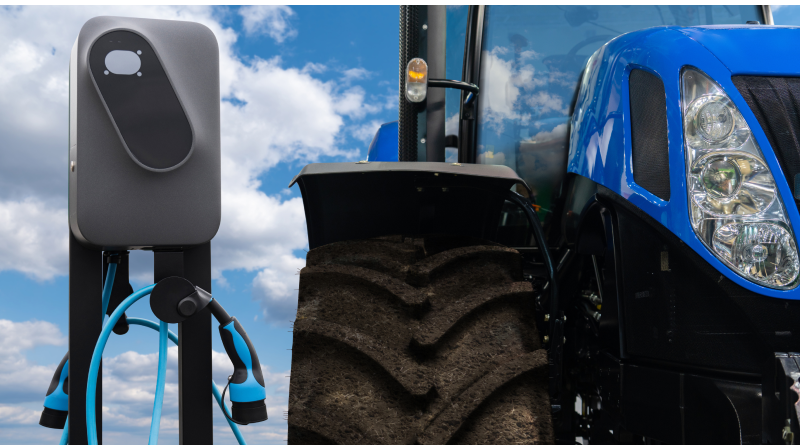What is the best semi truck to buy in 2025? A guide by type, brand and use case

When it comes to buying a semi truck, there’s no one-size-fits-all answer. What’s “best” depends on how you’re using it, what routes you’re running, and what kind of return you need out of your investment. Whether you’re a seasoned fleet manager looking to refresh your lineup or a first-time owner-operator aiming to make the smartest first purchase, this guide is for you.
At Ritchie Bros., we’ve seen it all. Thousands of trucks pass through our multiple buying and selling solutions every year. We track what sells, popular models by year, brand, mileage and more. So while we won’t name a single “best” semi truck, we can show you which models and brands consistently rise to the top.
Top semi trucks in 2025: a quick snapshot
Based on resale demand, reliability, and overall owner satisfaction, here’s a short list of heavy hitters in 2025:
- Freightliner Cascadia (113 & 125) – Known for fuel economy, driver comfort, and nationwide service support.
- Kenworth T680 – A favorite for long-haul fleets with aerodynamic design and solid performance.
- Peterbilt 579 – Offers a smooth ride and premium interior; great for owner-operators.
- Volvo VNL Series – Strong reputation for reliability and safety features.
- International LT – Competitive on price, solid specs for fleet buyers.
Each of these models shows strong resale activity in Ritchie Bros. auctions and marketplace listings. We’ve consistently seen units like the Cascadia move quickly, especially when well-maintained with mileage under 300,000 miles (500,000 km). These trucks are also in high demand among fleets seeking to reduce downtime and secure long-term value.

Types of semi trucks and what they’re best For
Before picking a model, make sure you’re buying the right type of truck for the job. Semi trucks come in several configurations that are tailored to specific uses, terrain conditions, and driving ranges.
Day cab vs. sleeper cab
Day cabs are typically used for local or short-haul routes where overnight stays aren’t needed. Their compact design means better fuel economy and easier maneuvering in urban environments. Sleeper cabs, on the other hand, are built for life on the road. They offer sleeping quarters for drivers, and depending on the spec, may include refrigerators, entertainment systems, and extra storage.
Axle configurations
Truck axles impact both the vehicle’s load-bearing capacity and fuel efficiency. For instance, 4×2 and 6×2 setups are lighter and more efficient but are suited to less demanding hauls. A 6×4 configuration is more versatile and offers better traction and durability, making it a standard choice for heavy-duty transport.
Transmission
Manual transmissions give experienced drivers full control and are often more repair-friendly. However, automatic transmissions are becoming more prevalent across fleets due to ease of use, improved fuel efficiency, and less driver fatigue—particularly useful in long-haul applications.
Fuel types
While diesel remains the standard in long-haul trucking, alternative fuels like natural gas and electric are making inroads in urban and regional operations. Regulatory incentives in some states are also driving adoption of cleaner technologies, especially among fleet operators looking to future-proof their assets.
Most reliable semi truck models on the road
Reliability isn’t about showroom shine — it’s about truck uptime, access to service, and how well a truck holds up under load for cross country trips. From what moves through our marketplace, these models have earned their stripes and badges for reliability:
- Kenworth T680 – Highly rated by fleets for its performance, and parts are widely available.
- Volvo VNL 760 – Offers solid longevity with its I-Shift transmission and driver-assist features.
- Freightliner Cascadia – Especially the newer models, which offer excellent MPG and consistent performance.
As with most heavy equipment or vehicles, reliability doesn’t just help you avoid the shop—it directly impacts your bottom line. These trucks not only run longer without major service but also retain value better over time. Buyers who prioritize reliability are more likely to see a return on investment when it’s time to sell or trade.

Best semi truck brands (and who’s leading sales)
Let’s take a broader industry view for a moment. While resale and auction activity provide important insights into what holds value, the story of “who’s leading” starts with new truck sales.
Top brands in 2025 by OEM sales:
According to data from ACT Research and industry reports, Freightliner continues to dominate new Class 8 truck sales in North America. In Q1 of 2025, Freightliner accounted for approximately 38–40% of all new semi truck sales — a commanding lead fueled by the popularity of the Cascadia line.
Other brands rounding out the leaderboard include:
- Kenworth – A strong player with consistent performance across vocational and over-the-road applications.
- Peterbilt – Highly favored among owner-operators for quality and customization.
- Volvo Trucks – Recognized for safety, comfort, and increasing adoption in large fleets.
- International – Maintains a loyal customer base, especially for regional fleet operations.
Industry Insight: These figures represent new Class 8 sales, where Freightliner’s dealer network and OEM incentives help it maintain top position.
At Ritchie Bros., we see how these brands perform in the secondary market. Freightliner and Kenworth trucks — particularly 3–6 year-old models with clean maintenance records — consistently attract high interest and strong final bids in our auctions.
Fleet buyers often lean toward reliability and ease of service across multiple units. Meanwhile, owner-operators gravitate toward brands that offer a balance of comfort, resale value, and operational efficiency. Peterbilt, for example, continues to lead in driver satisfaction — and that shows in both its resale velocity and the bidding activity we see on our platforms.
Buying used: the best value for your money
A new truck isn’t always the smartest buy — especially with depreciation hitting hard in the first 2–3 years. Used trucks offer better value, provided you do your due diligence.
What to look for:
- Maintenance records – Regular service? Oil change history? Tire replacements?
- Mileage vs. age – A 4-year-old truck with 250,000 miles (400,000 km) and clean history can be a gem.
- Single owner – Fewer drivers usually means less wear and tear.
Buyers looking to stretch their dollar often find better deals on lightly used units that are well-maintained. At Ritchie Bros., we inspect thousands of trucks every year. Many listings include detailed condition reports, photos, and even inspection summaries. Plus, our inventory includes trucks across every price point — from low-mileage premium models to work-ready budget units.
Pro tip: Looking for a gently used Kenworth T680 with under 300,000 miles (500,000 km)? Set up a saved search alert on our site.

What to consider when choosing your semi truck
Every haul has its own challenges. Here’s a final checklist to guide your decision:
- Haul type: Long-haul, regional, or local delivery?
- Terrain & weather: Do you need better traction (6×4) or fuel efficiency (6×2)?
- Payload capacity: Are you hauling light freight or maxing out every load?
- Driver comfort: For long-haul drivers, cab amenities matter — from fridge space to mattress size.
- Compliance: Check emissions standards in your state or province.
Also consider your operational model. If you’re running multiple drivers through the same truck, focus on durability and ease of service. If you’re an owner-operator, comfort and customization might take priority. Either way, the key is aligning features with your business model.
Make sure to cross-reference your requirements with what’s currently available — you can filter by all these specs directly in the Ritchie Bros. inventory.
Search trucks by type or brand on Ritchie Bros.
Ready to start shopping? Browse used semi trucks for sale at Ritchie Bros. Sort by brand, year, mileage, and cab type to find a match for your next job.
Some quick links you may find helpful:
We run weekly auctions on IronPlanet and accept online bids — no need to wait for the next big Ritchie Bros. event.

Final thoughts: the best truck is the one that works for you
There’s no single answer to “what’s the best semi truck.” But there are great choices depending on your route, cargo, and comfort level. Freightliner may lead in overall volume, Kenworth and Peterbilt dominate with driver loyalty, and Volvo continues to impress the US with its innovation and devotion to road safety.
Transportation technology is moving fast — and the road ahead might look very different in just a few years. With electric drivetrains, automation, and alternative fuel tech accelerating across the broader automotive industry, it’s only a matter of time before those breakthroughs reshape the trucking world. The best truck for your fleet today might look very different than the one you’ll buy five years from now.
At Ritchie Bros., we’re here to help you make the right choice — with inventory that fits your needs, your budget, and your business. Whether you’re buying your first truck or your fiftieth, you’ll find a truck that’s ready to go to work.
 |
How Ritchie Bros. delivers global scale for your assets |





